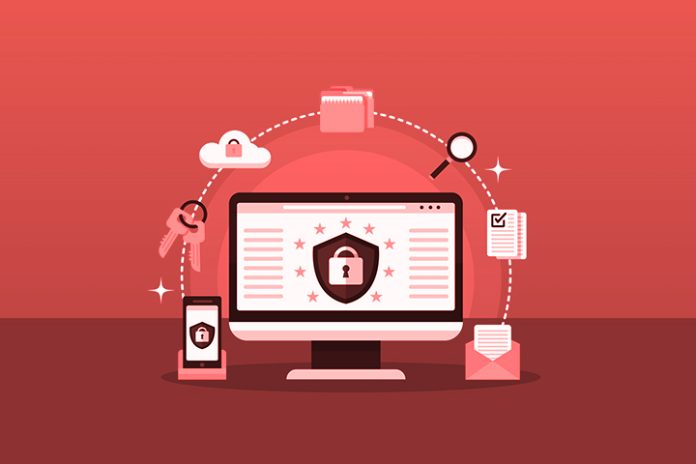A virus downloaded by mistake, a hard drive that fails, a computer that disappears after a theft or fire… the risks of losing your computer data are multiple. Fortunately, there are backup solutions that will allow you to recover everything in a few minutes: make copies, save your data, duplicate them… Find our advice in this article and find out if your computer is reliable.
Is your computer reliable?
Firewall and antivirus software
Knowing that there is a copy of your files is reassuring, but you must first apply the main IT security rules:
- Install a good antivirus on your PC and update it regularly. Avoid free antiviruses if possible because some can use your personal data for advertising purposes. Good antiviruses generally include a firewall system. This secures you by blocking the downloading or execution of malicious programs from the internet.
- Raise awareness among other computer users , particularly children and adolescents, about the risk of downloading a virus by consulting unsecured pages.
- Install an inverter at the PC’s electrical outlet. In the event of a power outage, the computer will not shut down suddenly and the user will have time to save their data and then properly shut down their workstation.
- A maintenance contract may be of interest. The customer then has a service which carries out updates on time, and provides appropriate advice in the event of problems.
The rules of a good password
The following rules are recommended for passwords:
- A length of at least 12 characters of different types (uppercase, lowercase, numbers, special characters);
- Do not keep written records of your passwords and if possible do not pre-record them in your web browser.
- Use a different password for all your sensitive sites (banking, insurance, professional software, etc.)
Backup your data
Use a cloud solution for your backups
The “cloud” is an English term which translates to cloud in French. It designates a large storage space accessible via the Internet. With applications like OneDrive, it’s quite easy to schedule an automatic copy of all the files and directories on your computer to the cloud. This secure platform is accessible via a password account. The information can then be consulted and retrieved from any other station.
The OneDrive application is included in the Microsoft Office 365 Essential pack also including office software (Word, Excel) with a version accessible online. Many brands offer their own cloud. It’s up to you to choose according to your criteria: storage volume, accessibility, sharing options…
Opt for an external hard drive
Another backup method, the external hard drive: it plugs directly into the computer like a USB key, but its capacity is much larger: 256, 512 or even 1,000 or 2,000 GB (giga bytes) of memory. That’s as much, or even more, than the space available on a traditional desktop computer. Enough to copy all of your professional and personal information and find it quickly in the event of loss.
It is possible to manually copy and paste directories and files onto the hard drive, but the operation can quickly become tedious. Also, there are solutions for automatically duplicating files saved on your PC on the external hard drive, at the desired rate: for example, every evening at the same time or once a week. One constraint, however: ensure that the computer is turned on and the disk plugged in at the time of copying.
Adopt secure browsing
Browse secure sites
To check that a site is secure, it’s very simple. Just look in your browser bar containing the URL. If the site address begins with “https” and/or you see a padlock, the site is secure. The “s” in https means that it uses SSL encryption, which ensures the security of the data you provide. You can therefore enter your personal information such as a login username and password or banking details. This verification is imperative before any online purchase in particular.
Beware of phishing
- Never respond to a request for personal, tax or banking information even if the message graphics use the colors of your bank or an administration. These are phishing attacks.
- Carefully check the address of the senders of the emails you receive,
- Be wary of dubious titles containing spelling mistakes.
Also Read: Data Security On Your Home Computer – Tips For Backups And Restoration


